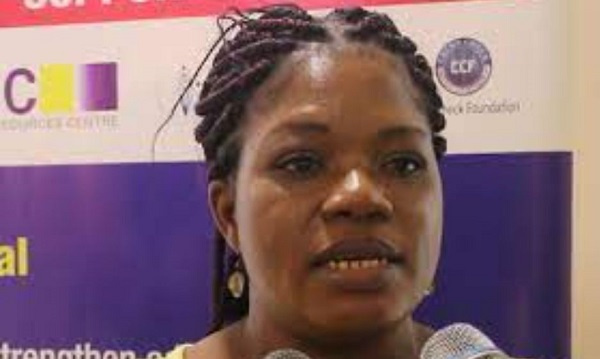Most Police Stations not utilizing Case Tracking System – Esther Ahulu
The CTS was launched in 2018 with support from the US government. It is expected to promote inter-agency collaboration and information-sharing in effectively investigating and prosecuting criminal cases.

The Programmes Director of the Commonwealth Human Rights Initiative, Esther Ahulu says a majority of police stations are not taking advantage of the Case Tracking System (CTS).
“Based on our findings on the ground. We say findings because as part of the project, we have a group that goes to the various stations across the 40 districts, to monitor the utilization of the CTS, which we call the community case tracking groups. Now from the information we are receiving, most of the stations are not using the CTS,” she said on the Law Programme by host Samson Lardy Anyenin, discussing the Case Tracking System and avenues for speedy justice delivery.
Her organization is part of the implementing partners of the CTS project.
She explains that the role of the police service in the chain of the project is important because the whole process usually begins with them.
"The Police and EOCO are the originators – so the whole process starts from these two institutions. So we can at least pardon the other four institutions. Because if the police doesn’t input into the system, it will not get to AG and for the other institutions to work on it. That is why the police station is one of the key institutions that we are monitoring."
Systems Implementation Engineer, Etornam Nazzar, also a guest on the show, noted that there were certain challenges that affected the smooth operation of the project.
“When we go to the site, there is a lot of resistance. You can go to a police station and the station officer there says, I am not computer literate and doesn’t want to expose that weakness. From the get-go, there’s resistance to even use the system. You train them and you think everything is well. When you leave and they just pack the equipment, because I don’t appreciate the use of the system. So they don’t utilize it as it should," he said.
Adding Esther said: "Truly when we go on the grounds, some of these machines are packed and it’s kept in the cupboard. One of the challenges is the issue of the transfer of police officers. So you train somebody here in this station, the next moment you go and the person has been transferred to another station. And unfortunately, the person will even be transferred to a station that does not have a CTS. So the knowledge and skills that the person has acquired become useless. And another issue is that those that receive the training also refuse to hand down the training to their colleagues in their stations. Because the idea was for them to serve as trainers of trainers. So the few that benefit from this training are supposed to hand out the information to their colleagues."
They both called for a policy or law of some sought, to make it mandatory for all police officers to enter every case into the system.
The CTS was launched in 2018 with support from the US government. It is expected to promote inter-agency collaboration and information-sharing in effectively investigating and prosecuting criminal cases.
The project is currently being implemented in 40 districts in seven regions with the hope of including the nine other regions by end of 2023.
Members of the technical committee were drawn from the six (6) stakeholder agencies, namely the Judicial Service of Ghana, Ghana Police Service, Economic and Organized Crime Office (EOCO), Ghana Prisons Service, and Attorney General’s Office, and Legal Aid Commission.


